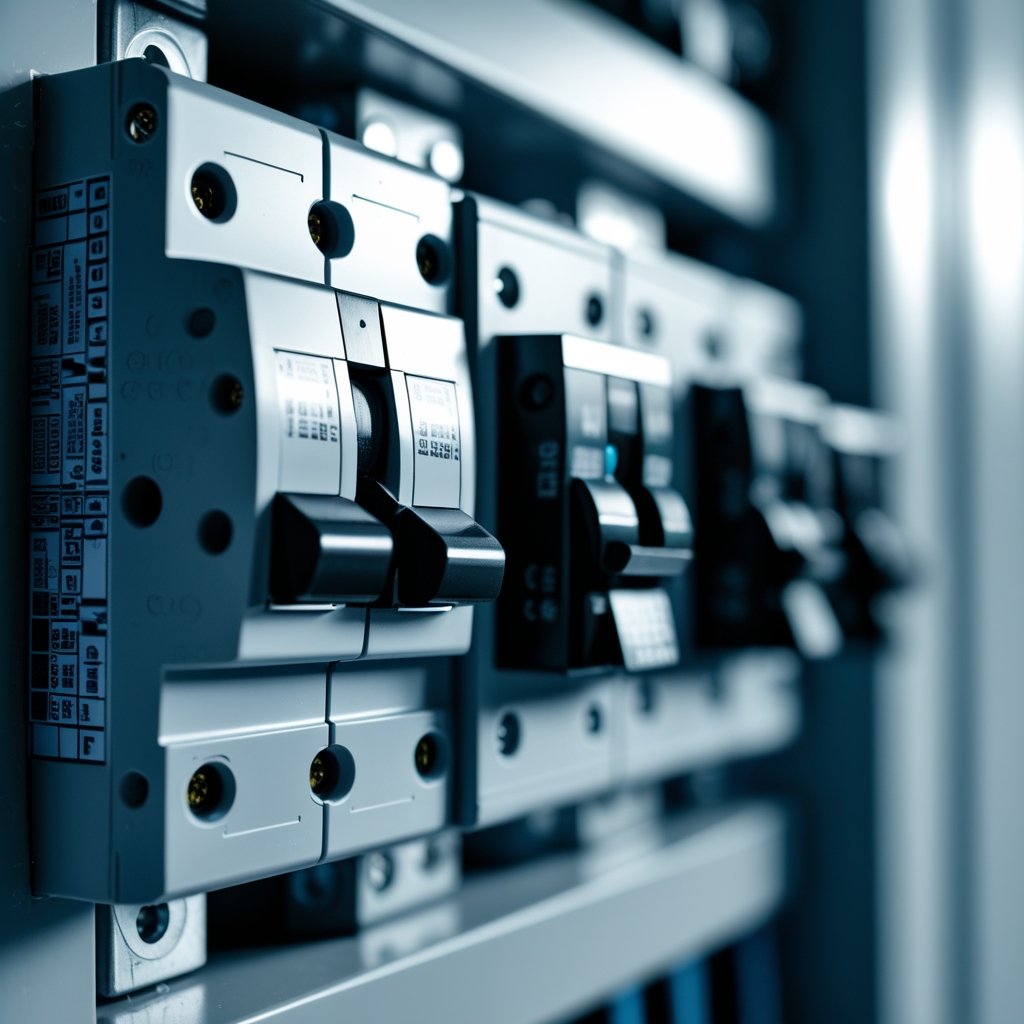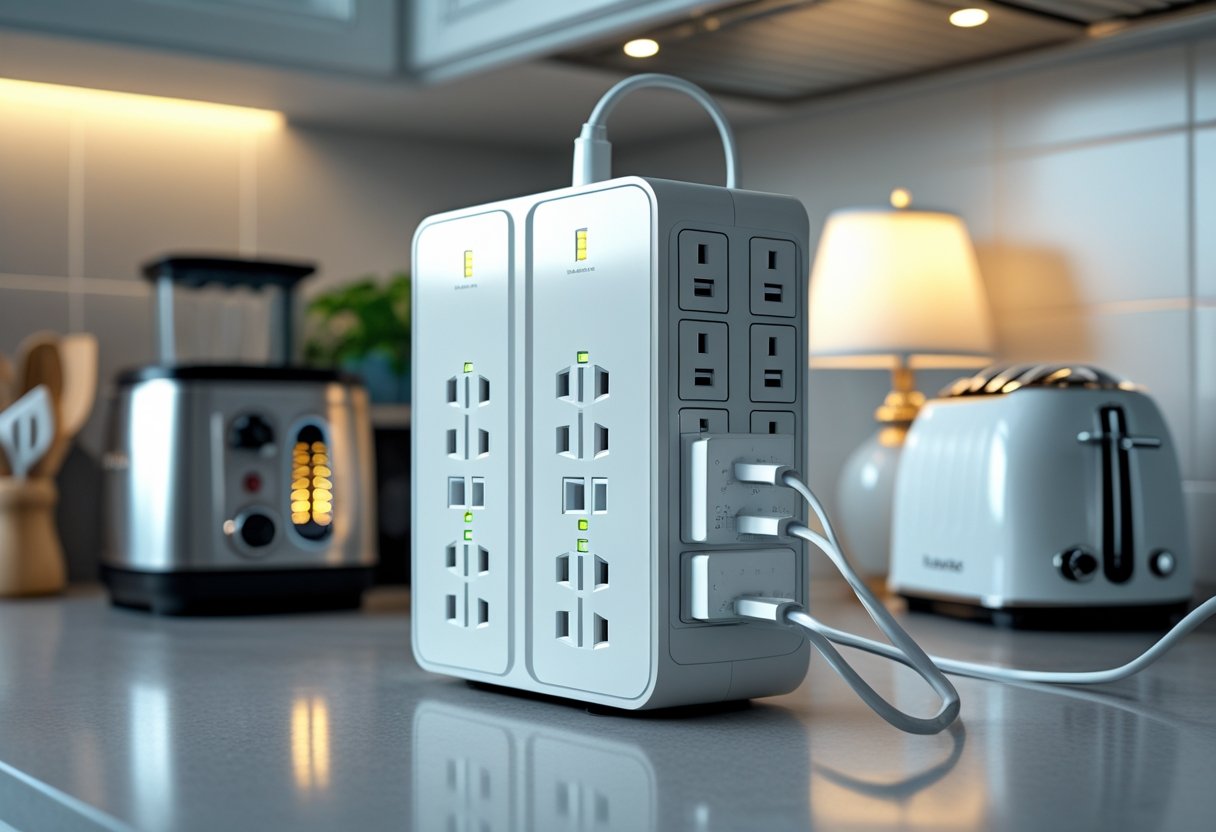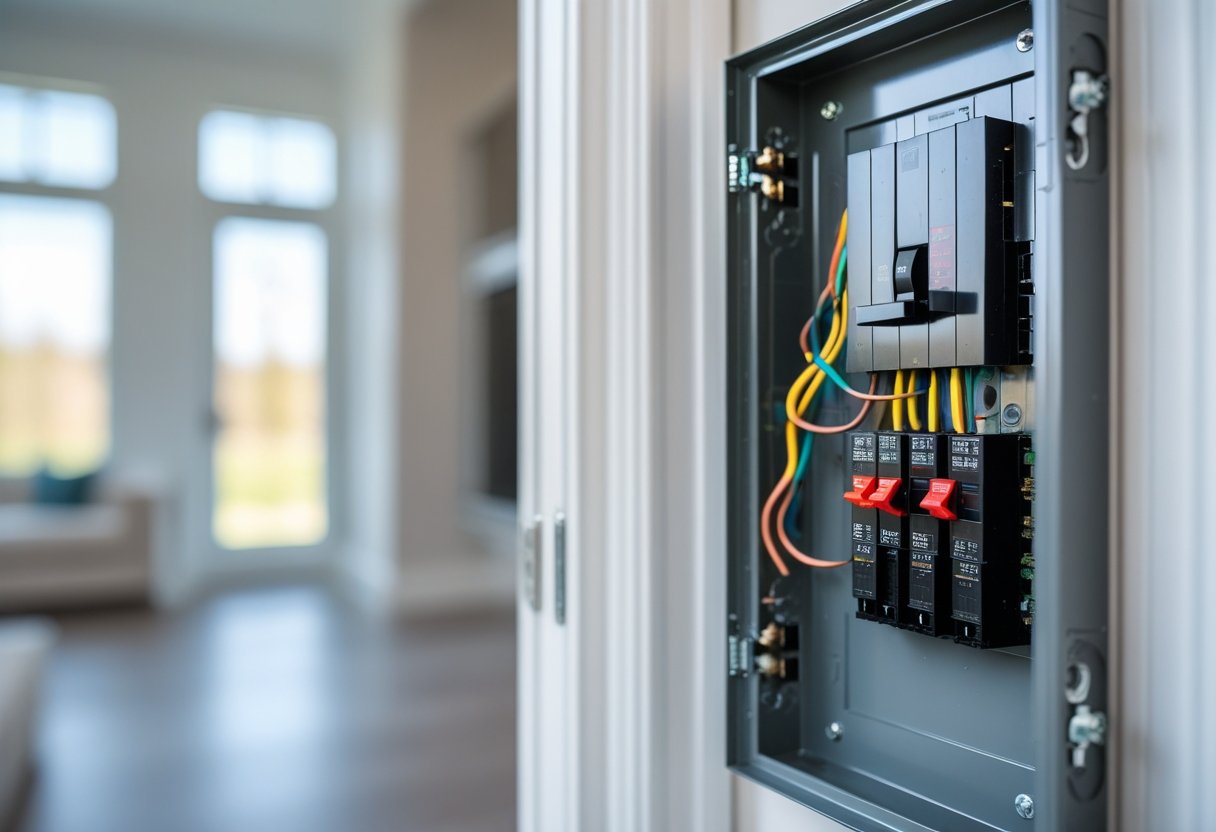If you hear a buzzing sound coming from your circuit breaker, something isn’t quite right. The buzzing often happens because the breaker is overloaded, loose, or starting to wear out, which can create a safety risk if ignored.
This noise is your breaker’s way of warning you before a bigger problem happens. Sometimes, the buzzing comes from damaged wiring or a ground fault, where electricity leaks outside its normal path.
Paying attention to these sounds can help you prevent electrical issues and keep your home safe. If your breaker buzzes often, check it or call a professional for help.
Understanding Circuit Breaker Buzzing
Buzzing from a circuit breaker is a sign that something is happening in your electrical system. The sounds can vary and point to different issues, from simple overloads to something needing repair.
Knowing what to listen for helps you take the right action.
What Causes Circuit Breakers to Buzz
Buzzing usually happens when your breaker is under stress. It can be because the circuit is overloaded, meaning too many devices are running on the same line.
Another common cause is a loose connection inside the breaker or the panel, which can make electricity jump and create noise. Sometimes, the buzzing comes from a faulty breaker starting to fail.
The electrical contacts inside might wear down, causing resistance and the buzzing sound. If you smell burning or see sparks alongside the buzzing, turn off power and call an electrician immediately.
Types of Buzzing Sounds
The buzzing sounds you hear can tell you a lot. A low, steady hum often means your breaker is working hard but hasn’t failed yet.
This is common when circuits are overloaded but not dangerous if fixed quickly. A loud, sharp buzz might indicate a loose wire or a failing breaker.
This kind requires quick attention to avoid damage. Sometimes, you might hear a buzzing that comes and goes, especially when an appliance cycles on and off.
This can help you track down the specific device causing the problem.
Electrical Issues Behind Circuit Breaker Noise
A buzzing circuit breaker usually means there’s a problem with how electricity is flowing in your home. This noise often points to specific electrical issues that need your attention.
Loose Wiring Connections
Loose wiring inside the breaker box can cause a buzzing sound. When wires aren’t tightly connected, electricity has to jump gaps.
This makes the breaker vibrate and buzz because of the uneven flow. Loose wires can be dangerous.
They may lead to overheating or even sparks, which increases the risk of electrical fires. You might also notice flickering lights or devices that don’t work properly.
If you suspect loose connections, have a professional check your breaker panel. Trying to fix it yourself can be risky if you don’t have the right tools and experience.
Overloaded Circuits
An overloaded circuit happens when you plug in too many devices at once. The breaker tries to handle more electricity than it’s designed for, which often causes a buzzing or humming sound.
This buzzing is the breaker reacting to the extra load by trying to interrupt the current. It’s a warning that the circuit is working too hard.
Over time, this can wear out the breaker or cause it to trip frequently. To fix this, reduce how many devices you use on one circuit.
You could also ask an electrician to add more circuits to balance the electrical load in your home.
Device and Environmental Factors
Some buzzing sounds come from parts inside the breaker itself. Other times, changes in the air around your home affect how the breaker works.
Both of these can cause the noise you hear.
Faulty Circuit Breaker Components
If your circuit breaker is buzzing, it might have worn or damaged parts inside. Loose connections or a failing internal coil can make a humming or buzzing sound.
This happens because electricity struggles to pass through a broken section. A breaker that trips often or feels hot to the touch may be showing signs of internal failure.
In this case, buzzing is a warning that the breaker needs repair or replacement. You should avoid ignoring these sounds because a damaged breaker can be a safety risk.
Checking for loose wires or corrosion can help. If the buzzing persists, call an electrician.
They can inspect the breaker safely and fix any faults.
Ambient Temperature Effects
When the temperature around your breaker panel changes a lot, it can cause buzzing noises. Heat makes the metal inside expand, sometimes causing connections to loosen or vibrate.
Cold can make parts contract, which also may affect the breaker's fit. High humidity near your electrical panel can worsen this problem.
Moisture can cause corrosion or short circuits that lead to buzzing and flickering lights. If your breaker buzzes more on hot or humid days, try improving ventilation near the panel or using a dehumidifier.
Keeping the area dry and cool helps keep your breaker working quietly.
Distinguishing Safe From Dangerous Buzzing
Buzzing sounds from your circuit breaker can mean different things. Some noises are normal and not harmful, while others warn of serious electrical problems.
Knowing which is which helps keep you safe and prevents damage.
Normal Operational Sounds
A soft, low buzzing or humming sound can be normal when your breaker is working. This often happens because electricity flows through metal parts inside the breaker, causing small vibrations.
The noise usually stays steady and doesn’t get louder over time. If the buzzing happens right after turning on a heavy appliance, it could be the breaker adjusting to the increased electrical load.
This sound should stop quickly once the current flow stabilizes.
Watch for these normal signs:
- Constant but quiet humming
- No sparks or visible damage
- No heat or burning smell around the breaker
These sounds don’t mean your breaker is broken, but it’s okay to have an electrician check if you’re unsure.
Warning Signs of an Electrical Hazard
Loud buzzing, crackling, or popping sounds are warning signs. These noises may mean the breaker is overloaded, faulty, or there is damaged wiring.
Ignoring these can lead to electrical fires or shocks. Other danger signs to watch for:
- Breaker trips frequently
- Breaker feels hot or warm to touch
- Flickering or dimming lights
- Burning smell near the breaker panel
If you hear these noises, turn off the power to that circuit and call a licensed electrician immediately. Do not use the breaker until it has been inspected and repaired.
How to Address Circuit Breaker Buzzing
When your circuit breaker starts buzzing, act carefully to keep your home safe. You can try some simple checks on your own first.
If the problem seems serious, knowing when to get a professional is key.
Initial Troubleshooting Steps
Start by checking if the breaker is overloaded. Turn off some devices on the circuit and see if the buzzing stops.
If the breaker still buzzes, try resetting it by switching it off and on again. Look for any visible signs of damage like scorch marks or a burning smell near the breaker panel.
These signs mean you should not touch it further. You can also check if appliances connected to the circuit are faulty.
Unplug them one by one and watch if the buzzing stops. This might help you find the cause.
Avoid using water or any tools unless you are sure the power is off. Safety always comes first.
When to Contact a Licensed Electrician
If buzzing continues after your basic checks, call a licensed electrician. Buzzing can signal problems like loose wiring, a failing breaker, or an electrical panel issue.
These need professional inspection to avoid fire risks. If you notice burning smells, flickering lights, or frequent breaker trips, it’s time for expert help.
Don’t try to fix these yourself, as they involve high voltage and safety risks. A qualified electrician can test the breaker with proper tools, repair or replace parts, and ensure everything meets safety standards.
This keeps your home’s electrical system working safely.
Preventing Circuit Breaker Buzzing
To stop your circuit breaker from buzzing, start by checking for overloads. Too many devices plugged into one circuit can cause buzzing.
Try unplugging some items and see if the noise stops. Also, inspect your wiring for any damage or loose connections.
Faulty wiring can make the breaker buzz and can be unsafe. If you’re unsure, contact a professional electrician for a checkup.
Make sure your breaker panel stays cool. Overheating can cause buzzing sounds.
Keep the area around your panel clean and well-ventilated to help prevent this. If the breaker keeps buzzing despite these steps, consider replacing the breaker.
Worn-out breakers can make noise and may not work properly. Remember to turn off the main power before handling any electrical parts.
Here’s a simple checklist you can follow:
StepWhat to Do Reduce circuit loadUnplug some devicesCheck wiringLook for damage or loose connectionsKeep panel coolEnsure good airflow around breaker panelReplace breaker if neededSwap old or faulty breakers safely
By following these steps, you can keep your electrical system safer and quieter.
Long-Term Implications of Ignoring Circuit Breaker Noise
If your circuit breaker is buzzing, something is wrong. Ignoring this noise can lead to bigger problems down the road.
Here’s what could happen if you don’t address the buzzing:
- Overheating: The breaker can get too hot, which may damage the breaker itself or the wiring connected to it.
- Electrical fires: Overloads or short circuits that cause buzzing can spark fires if left unchecked.
- Appliance damage: Power surges or unstable flow of electricity can harm your home appliances.
Buzzing usually means your electrical system is under stress. It could be caused by a loose connection, an overload, or faulty wiring.
Your circuit breaker’s job is to protect you by cutting off power when there is a risk. If the buzzing stops it from working correctly, your safety is at risk.
If you hear buzzing:
- Turn off the breaker.
- Unplug any connected devices.
- Call a professional electrician to check your system.
Taking these steps helps protect you and your home from damage or danger.
Frequently Asked Questions
Buzzing sounds from a circuit breaker usually mean there’s an electrical issue that needs attention. These sounds can come from overloads, loose wires, or faulty breakers.
Knowing what causes the noise and how to respond can help keep your home safe.
What could cause a circuit breaker to make a buzzing noise?
A buzzing noise can happen because the circuit is overloaded, meaning too many devices are drawing power at once. It could also be caused by a loose wire or a damaged breaker that isn’t working properly.
Is it normal for a circuit breaker to hum occasionally?
A very faint hum can be normal if your breaker is under normal load, but it should not be loud or continuous. Loud buzzing or humming often signals a problem that needs to be checked.
What are the common issues when a circuit breaker buzzes constantly?
Constant buzzing usually points to serious problems like a short circuit, loose connections, or a breaker starting to fail. Sometimes it means the breaker is worn out or cannot handle the electrical load.
Can a loose connection in my electrical box lead to a buzzing sound?
Yes, loose connections often cause buzzing because electricity arcs between the loose parts. This can be dangerous and needs to be fixed quickly to avoid electrical fires or damage.
Should I be concerned if I hear a slight buzzing from my breaker panel?
Even slight buzzing should not be ignored. It may be a sign that something is wrong, like a failing breaker or wiring issues.
It’s best to have a professional inspect it to stay safe.
What steps can I take if I notice a buzzing sound from a circuit breaker?
First, turn off the breaker. Unplug all devices on that circuit.
Avoid using the circuit. Ask a qualified electrician to inspect and repair the issue.
Do not try to fix electrical problems yourself unless you are trained.





